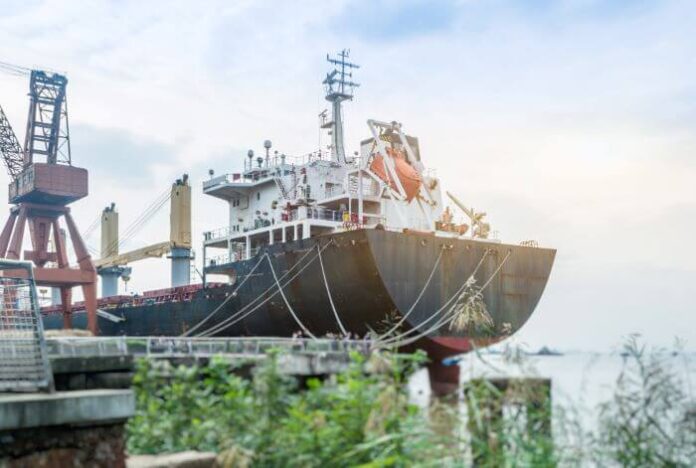The maritime industry plays an important role in global trade, transporting up to 90% of the world’s imports and exports each year. In this bustling sector, ship management emerges as a crucial element, ensuring the smooth and efficient running of fleet operations.
Specialist ship management companies take on this responsibility, providing expert services to maritime organisations and private vessel owners alike. Their work guarantees not just reliable sea travel but also enhances safety across the board.
From maintaining and repairing vessels to hiring qualified crew, and navigating the intricate legal requirements at different ports, ship management companies cover all aspects of vessel operation. They stand at the forefront, ensuring cargo is transported safely and securely.
In this article, we delve into five strategic ways to optimise fleet operations in the maritime industry through effective ship management.
How Ship Management Optimises Fleet Operations
#1: Efficient Ship Journey Planning
Ship management systems now have technology that can optimise vessel journeys. Due to weather conditions, safety concerns, and fuel consumption, efficient ship journey planning is essential for the successful operation of fleets.
Using scientific data and advanced technology, the journey of a ship can be efficiently planned, improving safety standards and optimising fuel consumption.
Professional ship journey planning avoids unnecessary spending and consumption, helping protect the environment. Many ship management companies use a digital dashboard that shows data and reports – allowing operators to make informed decisions. These tools help ship owners manage their fleets more effectively.
#2: Fuel Efficiency and Reducing CO2 Emissions
The maritime industry relies heavily on fossil fuels, which contributes to environmental damage and climate change. The shipping industry currently produces 3% of global CO2 emissions.
The International Maritime Organisation (IMO) has a target of halving carbon emissions by 2050. Energy efficient technologies, such as hull optimization, reduce fuel consumption, enhancing the operation of vessels.
With the implementation of new technologies to improve fuel consumption, ship management plays an important role in the reduction of fuel consumption for vessels.
#3: Routine Maintenance and Repairs
Proactive maintenance of vessels minimises the downtime of daily operations, ensuring ships can run efficiently. Ship management systems help to schedule and track maintenance tasks required for the upkeep of vessels.
Preventative maintenance can extend the lifespan of a vessel, improve safety standards, and reduce the long-term costs. It also helps to optimise fuel efficiency, meaning the running of vessels is more sustainable – a necessity in today’s climate.
Routine maintenance and repair of vessels enhances safety standards, ensuring the vessel operates at its optimal condition. This reduces the risk of accidents, equipment failures, and emergencies at sea. When a vessel is well-maintained, it is better equipped to handle adverse weather conditions and unexpected challenges.
This protects passengers and crew onboard the ship. Regular maintenance means a vessel operator complies with safety and environmental regulations, reducing the risk of fines and penalties. Complying with regulations also shows a dedication to responsible and sustainable business practices.
#4: Crew Management and Training
As a ship management company hires crew to work onboard ships, it is also responsible for the training and management of crew. Skilled crew members onboard ships mean more efficiency and productivity. If they know what they are doing and are experienced, then the running of the vessel will run smoothly.
Ship management companies implement systems that help with crew management, training, and certification tracking. They can oversee the recruitment of crews, making sure vessels have the best people onboard to do the work properly. There is a high correlation between well-trained crews and the safe, efficient operation of vessels.
#5: Regulatory Compliance
Maritime regulations and industry standards are always adapting to the current climate. Due to environmental damage and climate change, more sustainable regulations are being put in place so the maritime industry can reduce its carbon emissions. Safety standards are often improving to protect passengers and crew members onboard ships.
A ship management company will monitor and ensure compliance for the vessels it manages. Not adhering to regulations can involve penalties and fines, so it’s important for vessel operators to comply. These regulations are put into place to ensure the optimal functioning of fleets around the world.
The Importance of Ship Management for Optimal Fleet Operations
The maritime industry is a major player in global trade, handling a huge portion of all imports and exports. To keep things running smoothly, it’s crucial to optimize fleet operations, and that’s where ship management comes in.
This service is all about taking care of vessels, from maintenance and repair to hiring the right crew and making sure all legal requirements are met. In doing so, ship management companies ensure that vessels operate safely and efficiently all around the world.
With the help of technology, these companies are taking steps to make journeys safer and more eco-friendly. They’re finding ways to cut down on fuel use, which not only reduces CO2 emissions but also helps the vessels last longer and run better. This is a key part of making the industry more sustainable over the long term.
But their impact doesn’t stop there. They also push for greener practices, contributing to the industry’s overall move toward decarbonisation. Customers are starting to notice and appreciate these efforts, looking more and more for operators who prioritize sustainability.
From transporting goods and bulk carriers to serving the leisure and tourism sectors with yachts and other vessels, ships have a big role to play. With the help of ship management, the maritime industry can not only optimize fleet operations but also steer towards a more sustainable future.







